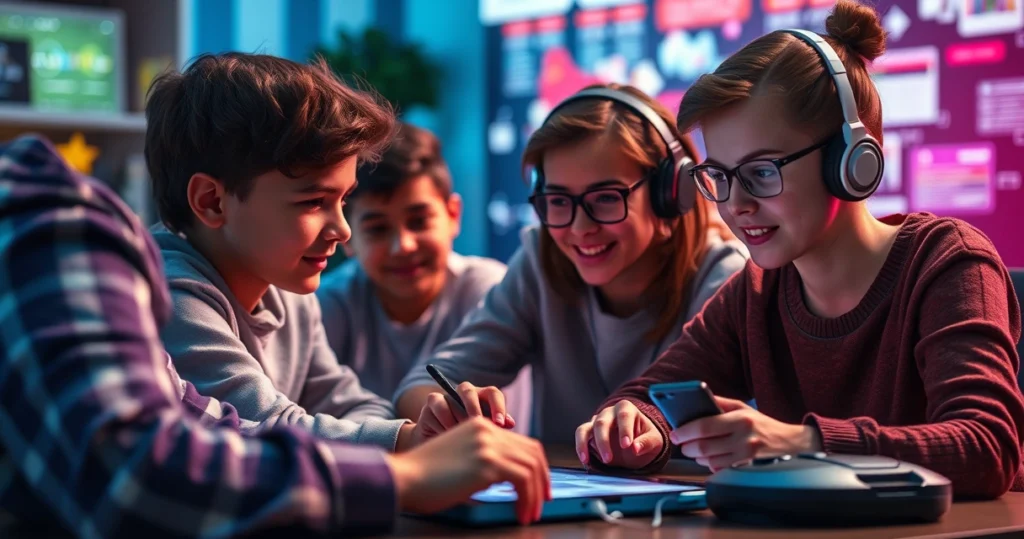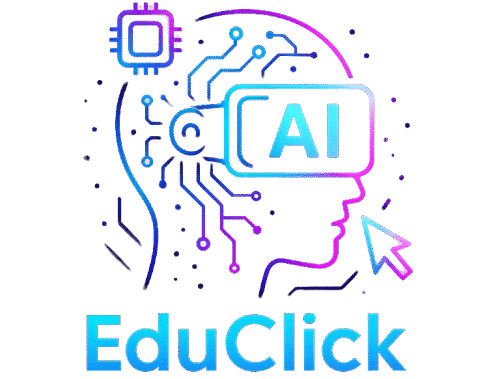Learning in the Metaverse: What to Expect by 2030
Imagine stepping into a classroom that defies the boundaries of traditional education, a place where you can travel through time, walk the streets of ancient civilizations, or even explore the human body from the inside. This is not a scene from a science fiction movie but a peek into the fast-approaching future of learning in the metaverse. Picture yourself, a student or a lifelong learner, slipping on a VR headset and instantly being transported to a dynamic, interactive environment that caters not just to your educational needs, but also to your curiosity and passion for discovery.

In the past, you may have experienced the limitations of learning confined to textbooks and lectures. You might recall those long hours spent in static classrooms, yearning for a more engaging and personalized educational journey. With the advent of the metaverse, these limitations are set to dissolve, offering you an immersive learning experience that adapts to your unique learning style and pace. This transformative shift is not just about technology; it’s about creating an educational landscape that is as diverse and dynamic as the learners it serves.
As you journey through this article, prepare to uncover the exciting possibilities and innovative teaching methods that the metaverse promises. Whether you’re an educator, a student, or a parent, understanding how these changes will redefine learning by 2030 can help you prepare for a future where education is not just informative but truly inspiring. The metaverse stands as a testament to the power of human ingenuity and the relentless pursuit of progress, inviting you to step into an educational world that is as boundless as your imagination.
Revolutionizing Education with the Metaverse
Immersive Learning Experiences
The metaverse is set to transform how you experience education by providing immersive learning environments. These experiences allow you to engage with content on a deeper level, making learning more engaging and effective. Picture yourself walking through a reconstructed ancient city or dissecting a virtual frog in a biology class without any ethical concerns.
- Interactive simulations that provide hands-on experience.
- Virtual field trips to historical sites, foreign countries, or outer space.
- Adaptive learning paths tailored to your strengths and interests.
Personalized Education
One of the most significant advantages of metaverse education is the ability to offer personalized learning experiences. This technology adapts to your individual learning style, pace, and interests, ensuring that you receive the most effective education possible.
- AI-driven insights and analytics to customize learning modules.
- Flexible curriculum design that evolves with your progress.
- Availability of a wide range of resources that cater to diverse learning needs.
Collaborative Virtual Classrooms
Virtual reality classrooms in the metaverse facilitate collaboration among students and educators across the globe. You can work on projects, share ideas, and engage in discussions with peers from different cultures and backgrounds, enriching your educational experience.
- Real-time collaboration tools for group projects.
- Cross-cultural exchanges that promote global understanding.
- Instant feedback from educators and peers.
Innovative Teaching Methods in the Metaverse
Gamification of Learning
Through gamification, the metaverse transforms learning into an engaging and competitive experience. By incorporating game mechanics into educational content, you can enjoy a more active and fun learning process.
- Earn rewards and badges for completing tasks and levels.
- Interactive quizzes and challenges that reinforce learning.
- Progress tracking through leaderboards and achievements.
Experiential Learning
Experiential learning in the metaverse allows you to learn by doing, providing real-world applications of theoretical concepts. This approach bridges the gap between knowledge and practice.
- Role-playing scenarios that mimic real-life situations.
- Simulated experiments for science and engineering courses.
- Practical applications of business and management principles.
Storytelling and Narrative Learning
Narrative learning leverages the power of stories to make complex subjects more relatable and memorable. You can immerse yourself in compelling narratives that enhance understanding and retention.
- Interactive story-driven modules that engage your imagination.
- Historical reenactments that bring past events to life.
- Case studies presented as engaging narratives.
🎥 Vídeo complementar sobre o tópico
The Future of Virtual Reality Classrooms
Equitable Access to Education
By leveraging virtual reality, the metaverse democratizes access to quality education, breaking down geographical and financial barriers. This ensures that everyone, regardless of location or economic status, has the opportunity to learn and grow.
- Affordable VR equipment and resources for underprivileged communities.
- Open-access educational content available to all.
- Partnerships with educational institutions to provide scholarships.
Redefining Classroom Boundaries
The traditional concept of a classroom is being redefined by the metaverse, which eliminates physical constraints and allows education to happen anywhere, anytime. This flexibility accommodates diverse learning schedules and environments.
- Asynchronous learning options for busy individuals.
- Virtual classrooms accessible from home, work, or on the go.
- Integration with smart devices for seamless learning experiences.
Enhanced Teacher-Student Interaction
In the metaverse, teacher-student interaction is revolutionized through innovative platforms that facilitate more meaningful engagement. You can receive personalized guidance and support from educators in a virtual setting.
- Virtual office hours for one-on-one mentoring.
- Interactive Q&A sessions and discussions.
- AI-powered teaching assistants to provide instant help.
Challenges and Considerations for Metaverse Education
Technological Requirements
While the metaverse offers numerous benefits, it also presents certain technological challenges. To fully participate in metaverse education, you must have access to reliable technology and internet connectivity.
- High-speed internet access as a prerequisite.
- VR headsets and compatible devices for immersive experiences.
- Ongoing maintenance and updates for software and hardware.
Privacy and Security Concerns
As with any digital platform, privacy and security are paramount concerns in the metaverse. Ensuring your data is protected is crucial to safeguarding your learning experiences.
- Implementing robust data encryption and security protocols.
- Regulating access and permissions for personal information.
- Continuous monitoring and improvement of security measures.
Adapting to New Educational Models
The shift to metaverse education requires you to adapt to new educational models and methodologies. This transition can be challenging but ultimately rewarding as it aligns with modern learning needs.
- Training programs to familiarize educators and students with new tools.
- Developing curricula that integrate metaverse technology.
- Encouraging a growth mindset to embrace change and innovation.
Metaverse Education: A Glimpse into 2030
The Integration of AI and VR
By 2030, the integration of AI and VR will be seamless, offering you an unparalleled educational experience. AI will provide personalized learning paths, while VR will deliver immersive content that enhances understanding.
- AI-driven analytics for personalized feedback and progress tracking.
- VR simulations that allow for experiential learning in various fields.
- Adaptive learning systems that evolve with your needs.
Global Collaboration Networks
The metaverse will enable global collaboration networks, allowing you to connect with learners and educators worldwide. This promotes cultural exchange and broadens educational horizons.
- International study groups and collaborative projects.
- Cross-cultural platforms for sharing knowledge and resources.
- Virtual conferences and seminars with global participation.
Environmental Impacts of Virtual Learning
Virtual learning in the metaverse has the potential to reduce environmental impacts associated with traditional education. By minimizing the need for physical infrastructure and transportation, you can contribute to a more sustainable future.
- Reduced carbon footprint from decreased commuting and travel.
- Conservation of resources by using digital materials instead of paper.
- Energy-efficient virtual environments promoting sustainability.

What is metaverse education?
Metaverse education refers to the use of immersive virtual environments to facilitate learning. It combines virtual reality, augmented reality, and other digital technologies to create interactive, engaging educational experiences that go beyond traditional classroom settings.
How can the metaverse improve learning?
The metaverse can improve learning by offering personalized and immersive experiences that cater to individual learning styles. It enables interactive simulations, virtual field trips, and gamified content, making education more engaging and effective.
What are the benefits of virtual reality classrooms?
Virtual reality classrooms offer numerous benefits, including enhanced engagement, access to global resources, and the ability to simulate real-world scenarios. They also provide flexible learning environments that can be tailored to individual needs.
Are there any challenges in implementing metaverse education?
Implementing metaverse education involves challenges such as ensuring technological accessibility, addressing privacy and security concerns, and adapting curricula to incorporate new technologies. These challenges require careful planning and investment to overcome.
How does gamification enhance learning in the metaverse?
Gamification in the metaverse enhances learning by incorporating game-like elements such as points, levels, and rewards. This approach motivates learners, increases engagement, and helps reinforce knowledge through challenges and interactive activities.
Will metaverse education be accessible to everyone?
One goal of metaverse education is to provide equitable access to quality learning experiences. However, achieving this requires addressing technological disparities and ensuring affordable access to the necessary tools and resources.
What role will AI play in metaverse education by 2030?
By 2030, AI will play a significant role in metaverse education by offering personalized learning paths, real-time feedback, and progress tracking. It will help create adaptive learning environments that cater to individual needs and preferences.
Can metaverse education reduce environmental impacts?
Yes, metaverse education has the potential to reduce environmental impacts by minimizing the need for physical classrooms and transportation. This shift to virtual learning can lower carbon footprints and conserve resources.
What is the future of metaverse education?
The future of metaverse education involves seamless integration of AI and VR technologies, global collaboration networks, and innovative teaching methods. It promises to create a more inclusive, engaging, and sustainable educational landscape by 2030.
How can educators prepare for metaverse education?
Educators can prepare for metaverse education by familiarizing themselves with emerging technologies, participating in training programs, and developing curricula that incorporate immersive learning experiences. Embracing a growth mindset and staying updated on educational trends are also essential.
Conclusion: Embracing the Metaverse for Future Learning
As we look toward 2030, the landscape of education is poised for a profound transformation, driven by the innovative capabilities of the metaverse. This new frontier offers you an opportunity to experience learning in ways that were once unimaginable. By embracing metaverse education, you are not just stepping into a virtual world; you are embarking on a journey that transcends traditional boundaries and limitations.
Your role as a learner, educator, or supporter of education will be pivotal in shaping this future. By remaining open to new technologies and methodologies, you can contribute to a more inclusive, engaging, and effective educational ecosystem. The possibilities are limitless, and the future of learning is bright, with the metaverse serving as a catalyst for change and progress.
As you consider the potential of metaverse education, think about how it can enhance not only your knowledge but also your ability to connect with others across the globe. The metaverse is not just about technology; it’s about creating a community of learners who are united by a shared passion for discovery and growth. Embrace this opportunity to be a part of the future of learning, and together, let’s make education an experience that is as dynamic and diverse as the world we live in.
Key Takeaways
- Metaverse education transforms learning with immersive, personalized experiences that engage students actively.
- Innovative teaching methods like gamification and experiential learning enhance retention and understanding.
- Virtual reality classrooms provide equitable access and redefine traditional educational boundaries.
- Challenges include technological requirements, privacy concerns, and adapting to new educational models.
- The future of metaverse education includes seamless AI integration, global collaboration, and reduced environmental impacts.




